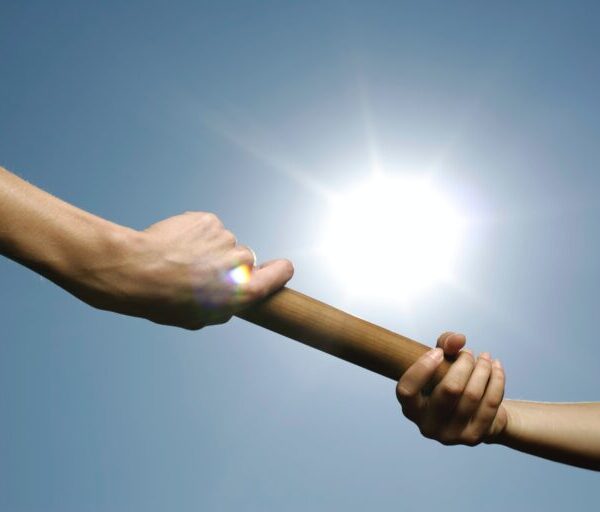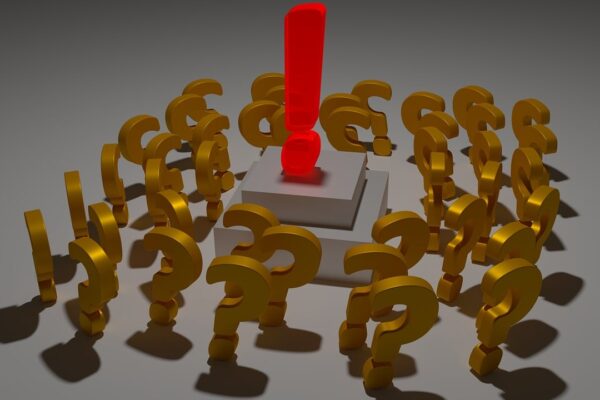The Great Paradox!
An ever-present human need is freedom. And the ability to choose is a hallmark of freedom.
This piece is a deviation from the path we have been on over the last several weeks. Therefore, before we embark on this journey, let me share why I feel compelled to go down this trail.
My motivation for writing this piece is personal. Like many of us, I believe humans are responsible for enabling those who come after them: children and future generations to thrive. It is both a responsibility and an honor.
Today, months after the 2020 pandemic, we seem to be at a crossroads with dire multi-generational consequences! Therefore, it is imperative to examine the path we are on. And it is a great paradox that leads to a pivotal question: What is the responsibility of older generations in a world filled with choices?
Today, people often say they want choices and freedom. What does this mean?
Choice is the power, right, or opportunity to choose. 297 Synonyms & Antonyms of CHOICE | Merriam-Webster Thesaurus And choosing is the act of selecting.
While freedom is the right to act or move freely – free from the control or power of another. 49 Synonyms & Antonyms of FREEDOM | Merriam-Webster Thesaurus Freedom is a human right.
Choice and freedom have one thing in common: Power!
The Grip of Power!
Power is a mysterious concept. The use of power can be incredibly helpful or catastrophically dangerous. I have experienced this several times. I have a hunch you have too!
Many years ago, I worked with a senior leader whose decisions seemed motivated by his desire to retain power rather than propel the shared cause. During an economic downturn, his organization underwent significant changes, and his behavior confounded and frustrated me. Desperate for wise guidance, I asked my dad for advice.
My dad spent his career working on a global scale with other senior leaders. They wielded considerable decision-making power, and their decisions transformed the lives of millions. Therefore, he is my go-to counselor in such situations. When I relayed the work situation to my dad, his response was peculiar. He said: Aké, no man wants to lose power – whatever they regard as power. Therefore, if a decision could lead to a loss of power, either perceived or actualized, they will push back against it. You need to structure and frame the challenge opportunity to account for this.
In a few phrases, my dad offered a morsel of wisdom that I have hung onto over the years: Do not fight power with power. Seek to understand and partner.
I often remember this counsel, and it has served me very well. Admittedly, sometimes, my Wonder Woman persona cannot resist a challenge. Fortunately, I have learned to reel it in and focus on winning the war, not the battle. 😊
The Burden of Choice.
Today, most of us have heard of or lived through a war, like the war in Ukraine. This war began when Russia launched a military invasion in February 2022. However, the Russian-Ukraine war sprouted several years ago, in 2014, as a series of battles. A timeline of Ukraine’s history : NPR
And this reveals a well-known truth: Wars are not a sudden event. They stem from battles. And battles are the result of choices.
Today, most of us want to have many choices or options to select from… When we search for a new home, we look at several homes before making an offer or a choice. Or a patron frequents a restaurant once a month for twelve months. And each time she goes in, she looks at the menu despite knowing what she wants to eat and knowing the menu is unchanged. Many of us understand and relate to this because we like to know our options and choose what we want. Or get the best deal. 😉 However, with many choices, the ability to discern or perceive what may be obscure is critical. And without this ability, one might resort to potentially imprudent or risky decision-making tactics such as guessing, convenience, or relying wholly on others’ opinions.
Consider this: What would you think if you overheard a parent tell their 2-year-old to cross a busy street alone? Or if you observed a Chemistry teacher leave a Grade 2 class of 7-year-olds alone in a lab with acids, bases, and bunsen burners?
I bet most of us would be appalled! Why?
One could say: The parent and teacher allowed the kids to be free, aka to exercise their freedom. However, most of us would object to this because we expect adults to limit kids’ choices until they can discern and make wise decisions. Therefore, we likely would not view such limitations as an infringement on a child’s freedom.
Is too much of a good thing a better thing or a bad thing?
Hmmm… This got me thinking about Generation Z (Gen Z). Gen Zs are those born between 1997 and 2012. Currently, they are between 9 and 24 years old. They were born and raised in the social media era. And some might say they learned essential human skills like making friends, forming connections, and building loving relationships through apps.
Want a friend? Click confirm on Facebook!
Want a date? Swipe right on Bumble!
Need a connection? Click request on LinkedIn!
Need some attention? Post a selfie with a TanVille filter on Instagram.
Phew! Dizzying!
Many apps fuel the instant gratification flame and make a tempting promise: You can get what you want. And you can get it now! But the unanswered question is: At what cost?
Let’s ask Gen Z!
A heavy price!
Research suggests Gen Z is the most stressed demographic in the workplace, with an overwhelming 98% dealing with symptoms of burnout. Adding to this, the continuous cycle of layoffs casts a dark cloud and leaves many worried that they are next in the exit line. Are Gen Z the most stressed generation in the workplace? – BBC Worklife
In addition, according to a study by Adobe, over any other age group, 57% of Gen Zs feel pressured to be available at all hours. Thereby leading to burnout and resignations. ‘The Great Resignation’: Why Gen Z Is Leaving The Workforce In Droves…And What To Do About It (forbes.com)
Accompanying the always-on culture is a barrage of mental health woes!
Based on research from the Walton Family Foundation and Murmuration, over half (52%) of Gen Zs know someone battling depression. And 1 in 5 know someone who has died by suicide. A Slow-Motion Crisis: Gen Z’s Battle Against Depression, Addiction, Hopelessness – The 74 (the74million.org)
Yikes! The world Gen Z inhabits seems more like a dystopia than a utopia.
We heard that the pandemic contributed to the surge in mental health distress, with an explosion in family illnesses, deaths, job losses, school closures, and extended periods of isolation. But we also heard that the pandemic was over. So, what is going on?
Humans, we have a problem!
Many have shed light on the impact of social media on the young generation.
On the financial front, 42% of young adults said they are living paycheck to paycheck, and only 33% said they could handle an unexpected significant expense. Also, slightly more than 33% consider retirement saving one of their top three financial goals. Researchers attribute these issues to where some young adults are looking for financial advice.
About 20% of the younger generation consider social media a trusted source for retirement planning, said Surya Kolluri, head of the Teachers Insurance and Annuity Association of America (TIAA). (SOURCE: https://www.foxbusiness.com/personal-finance/gen-z-millenials-bleak-outlook-financial-futures-study#:~:text=Forty%2Dtwo%20percent,term%20financial%20goals)
Given that one can claim expert status on social media by posting: I am an expert in “fill in the blank,” this should alarm us all. It is a low bar!
Is help on the way?
Reportedly, the woes that plague Gen Z and the impact of social media in exacerbating them have also caught the attention of the US Surgeon General and the American Psychological Association (APA). Both issued an advisory for teens and social media in May.
The APA stated that due to different maturity levels, some teens are more vulnerable to content and features on social media platforms. And they can influence healthy development. Also, the APA encouraged parents to monitor and regulate their teens’ social media usage. American Psychological Association issues advisory for teens and social media – Good Morning America
Additionally, the US Surgeon General, Dr. Vivek H. Murthy highlighted the need for social media companies to prioritize safety and privacy in their product designs and ensure that minimum age requirements are enforced. US surgeon general issues major advisory on social media use and teens’ mental health – Good Morning America
Does this sound reasonable?
We impose age restrictions and guidance for various forms of entertainment, including movies and alcohol purchases. But there seems to be apprehension to do the same with social media. Why?? Perhaps some consider enforcing minimum age requirements on social media to be an infringement on freedom…
Regardless of where one stands on this issue, we can all agree: If a pack of wolves and a flock of sheep know the value of caring for their young, humans do as well.
It is up to each and all of us!
With many choices comes an abundance of responsibility.
As was wisely said, it takes a village to raise a child. And parents bear primary responsibility for keeping their children safe and healthy. But one must also ask: Would a healthy society place the entire responsibility of shepherding future generations on two people or, in the case of single-parent households, on one person? What role does the tribe play in caring for its young members?
It might be easier for older generations to point out the glaring flaws that Gen Zs exhibit. But a deeper look might suggest that Generation Z is not struggling to thrive. Generation Z is fighting to survive in the world we created for them. We created a world for Generation Z filled with freedom and many choices. Our opportunity is to enable them to use power wisely by discerning and making beneficial choices. Fortunately, we all have a platform, whether five people deep or millions wide. And we can leverage our platform to improve the future.
How can you and I serve, steward, and shepherd our young generations? Mentoring, coaching, teaching, counseling, listening, writing policy, skilling up organizational leaders, or perhaps something else? Opportunities abound, and it is up to each and all of us!
For you and to you,
Aké
Image credit: Pexels | Diy13














